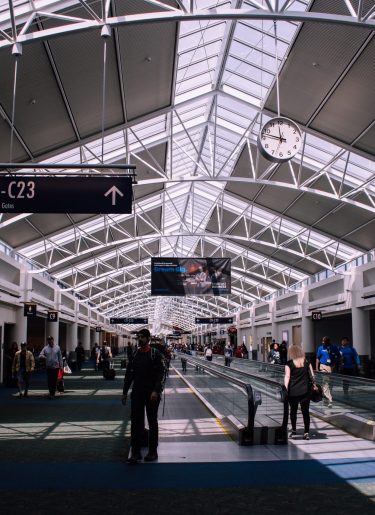
1. GUIDANCE
1.1 Has any guidance been issued on how UK nationals can obtain settled residence status and permission to work from 1 January 2021 and what proof of residence is needed for current residents to maintain their status?
Yes.
There are two categories of UK citizens:
Category 1: UK citizens resident in Germany prior to or on 31 December 2020
Subcategory a: Withdrawal Agreement applicable
Under the Withdrawal Agreement (WA) concluded between the UK and the EU, UK citizens and family members resident in Germany by 31 December 2020 can live and work in Germany beyond this date if they fulfil the prerequisites stated in the WA. They must register with the local foreign nationals office in Germany to obtain a ‘Residence Document-GB’ (Aufenthaltsdokument-GB) to prove their status by 30 June 2021.
Subcategory b: WA not applicable
UK citizens resident in Germany under the rights grated to them under the German Free Movement Act/EU (FreizügG/EU) by 31 December 2020 who do not fulfil the prerequisites of the WA (this may, for example, apply to seconded employees) are granted a transition period until 31 March 2021, during which they must apply for a residence/work permit (s80a of the Residence Reguation / AufenthV). They do not need a residence permit to continue to live in Germany until 31 March 2021 and are permitted to continue employment which they have started in 2020 until a decision has been made regarding their residence / work permit application.
Category 2: UK citizens who move to Germany on or after 1 January 2021
The WA and the transition period do not cover UK citizens who move to Germany on or after 1 January 2021. Therefore, they must apply for a residence/work permit to live and work in Germany if they are not only coming for a short stay for tourist or specific business purposes, which can be conducted visa-free (see below). Favourable prerequisites apply to some residence/work permit applications by UK citizens.
Please see 4 below for information on frontier workers.
2. BUSINESS TRAVEL
2.1 Do UK employees need a business visa from 1 January 2021?
No.
Regulation (EU) 2019/592 of 10 April 2019 exempts UK citizens from the requirement for a Schengen visa. UK citizens can enter and stay in the Schengen area for a maximum of 90 days in any rolling 180-day period from 1 January 2021.
However, even if allowed to enter and stay visa-free, UK citizens might need a visa if the activity conducted in Germany is considered employment in Germany. There are some exceptions from activities being considered employment (s30 of the Employment Regulation, BeschV). For example, a business trip of 90 days within 180 days is not considered employment in Germany if it fulfils the following prerequisites:
Employers and employees are advised to carefully check prior to travel if the activity may be considered employment in Germany. If it is considered employment and is not exempt from being considered employment under s30 of the Employment Regulation, a work visa will be required to conduct the trip. If this work visa is not obtained prior to the trip, the trip may be considered illegal employment with consequences for employee and employer (e.g. fines).
Further exceptions from the requirement for a work/residence permit are applicable under Articles 4.1 to 4.6 of the SERVIN (service industries) Annex to the Trade and Cooperation Agreement between the EU and the UK.
Please further note that, as UK citizens are no longer privileged with regards to COVID-related travel restrictions, they must now meet the requirements posed by travel restrictions applicable to third-country nationals when travelling into Germany, in addition to the above requirements. Additionally, the ban on transport from the UK and South Africa has been extended until 20 January 2021. Moreover, local quarantine requirements must be met.
2.2 What documents are needed on arrival for business travel from 1 January 2021?
Travel documents (a valid passport) with a validity of no more than ten years that is valid for at least three months after departure from Germany.
Proof of duration and purpose of stay as border control may ask additional questions concerning the duration and purpose of stay.
2.3 Do UK nationals need additional permission to work for business travel from 1 January 2021 in the event of no deal?
Yes.
UK nationals will need a work visa permitting the activity in Germany if their work for business travel is not exempt from being considered employment (see 2.1 above).
3. EMPLOYMENT AND RESIDENCE
3.1 Will UK nationals need permission to work and stay in Germany from 1 January 2021?
Yes.
Category 1 citizens fall under the transitional periods outlined in 1.1 and need to apply for the documents outlined above within those periods. Category 2 citizens must obtain a visa permitting them to conduct gainful employment or work as a self-employed individual in Germany prior to entry.
3.2 If permission to work is needed after 1 January 2021, do any quotas apply to the employment of third-country nationals?
No.
3.3 If permission to work is needed from 1 January 2021, what categories of permission are commonly granted?
EU Blue Card: main prerequisites:
Residence/work permit for purposes of conducting academically skilled employment (Aufenthaltserlaubnis zum Zweck der Beschäftigung für Fachkräfte mit akademischer Ausbildung): main prerequisites:
Residence/work permit for purposes of employment (Aufenthaltserlaubnis zur Ausübung einer Beschäftigung): main prerequisites:
3.4 If permission to work or stay is needed from 1 January 2021, how long does the procedure take?
Appointment waiting time: As UK citizens can choose to either apply for a visa at the competent German mission abroad or at the competent local German foreigner office in Germany after travelling to Germany, appointment waiting times vary widely according to the authority. Some local foreigner offices offer a drop-in service whereas missions usually operate on an appointment-only basis.
Processing time: Depending on the permit, the processing time can vary between a few days and around eight weeks.
3.5 If permission to work and stay is needed from 1 January 2021, what Government fees are payable?
Usually between EUR 75 and 150.
4. FRONTIER WORKERS
4.1 What formalities apply to UK frontier workers working in Germany but living in another country from 1 January 2021?
Frontier workers within the meaning of the WA continue to have the right to work in Germany on the basis of the WA, but not to live there. Frontier workers must obtain a ‘Residence Document for Frontier Workers-GB’ (Aufenthaltsdokument für Grenzgänger-GB) from the local foreign nationals office at their place of work in Germany.
5. PERMANENT RESIDENCE
5.1 From what date are third-country nationals entitled to apply for permanent residence?
Usually, five years of legal stay in Germany (subject to conditions). This is shortened to 33 months if the foreign citizen holds an EU Blue Card and 21 months if s/he also speaks B1-level German. Extremely highly qualified foreign citizens (e.g. university professors) may obtain it immediately.
6. SECURING RESIDENCE AND WORK STATUS
6.1 What steps could UK nationals take currently to secure their residence and work status?
Apply for the necessary documentation outlined above within the deadlines outlined above.

